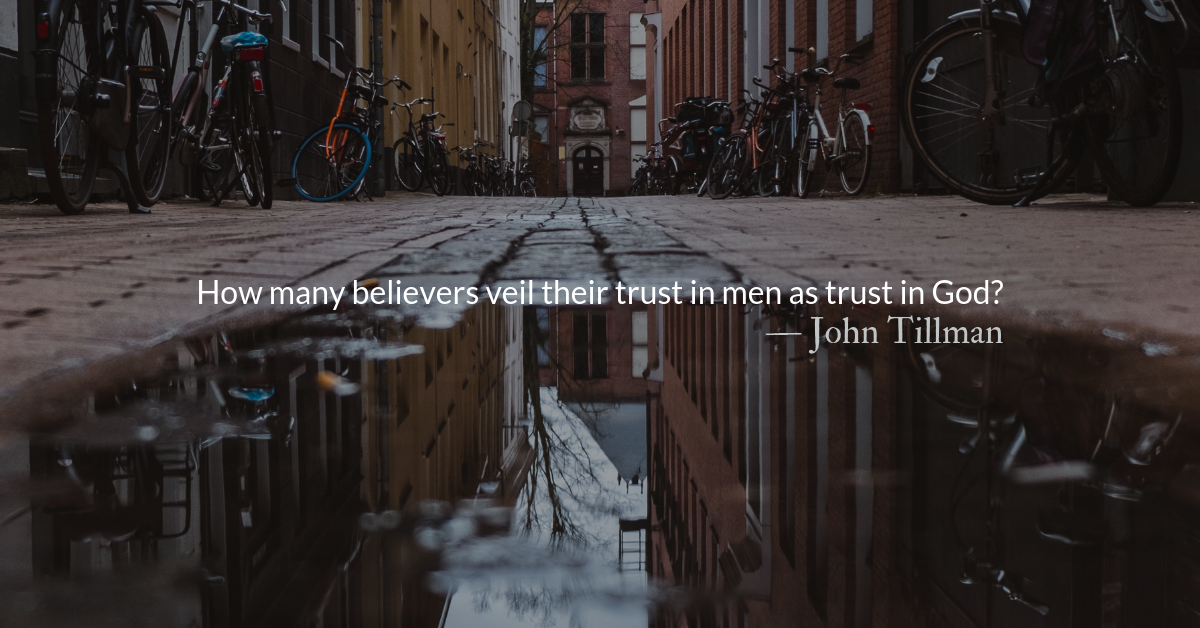Selected by reader, Jason from Texas
If our faith in God is based on people, then it becomes like a reed in the wind, swaying with every economic downturn and electoral cycle.
Scripture Focus: Psalm 146.3
Do not put your trust in princes,
in human beings, who cannot save.
Reflection: No Princes :: Readers’ Choice
Originally published July 11th, 2019
By John Tillman
How many believers veil their trust in men as trust in God? This can cause problems in two ways.
In the first, it can cause otherwise faithful people to bend over backward to defend a corrupt leader because to admit that the leader failed or that corruption was present would reflect badly on God’s work. Or it might even mean that the man was never “God’s man” in the first place and we had been duped by him. Unable to admit this, we rally to support and deny any accusation or attack, deaf to evidence or appeal.
The second is, in a way, the equal and opposite reaction. It causes people to believe that they must abandon faith in God because of a leader who broke faith or gave into corruption or abused his power. (It is almost always a man who does this…) Unable to separate their faith from the identity of the leader, they abandon faith.
In both of these cases, the followers’ faith was never in God in the first place.
Let us pray using some of the words of Psalm 146, asking God to protect our faith from even resting a little finger on the unworthy foundation of princes or kings or leaders. May our faith be built solely and solidly upon Jesus, his cross of suffering, and his glorious resurrection.
No Princes
Do not put your trust in princes,
in human beings, who cannot save.
The princes of this land cannot save us, nor do they intend to.
Their fine bracelets are shackles.
When their spirit departs, they return to the ground;
on that very day their plans come to nothing.
Even the greatest of princes will die, will fall, will fail.
Their plans will come to nothing and that nothing will come to those who trusted in them.
There is only one prince we must serve—the Prince of Peace…
He upholds the cause of the oppressed and gives food to the hungry.
The Lord sets prisoners free
The Lord gives sight to the blind,
The Lord lifts up those who are bowed down,
The Lord loves the righteous.
The Lord watches over the foreigner and sustains the fatherless and the widow, but he frustrates the ways of the wicked.
May we befriend the foreigner, the fatherless, and the widow.
And may we live to see the ways of the wicked frustrated, the chains of the prisoners fall, the blind lead us on with new sight, the bowed down rise up to run.
Divine Hours Prayer: The Greeting
Out of Zion, perfect in its beauty, God reveals himself in glory. — Psalm 50.2
– From The Divine Hours: Prayers for Summertime by Phyllis Tickle.
Today’s Readings
1 Samuel 2 (Listen – 6:09),
Romans 2 (Listen – 4:13)
Thank You!
Thank you to our donors who support our readers by making it possible to continue The Park Forum devotionals. This year, The Park Forum audiences opened 200,000 free, and ad-free, devotional content. Follow this link to join our donors with a one-time or a monthly gift.
Read more about When Nations Pray :: Worldwide Prayer
Help us to incarnate a gospel that evangelizes and emancipates those in need as a real and relevant demonstration of our living Christ.
Submit a Readers’ Choice
Let our community hear how your faith has grown. What post helped you heal?







